Teaching Old Dogs New Tricks for a Longer, Happier Life
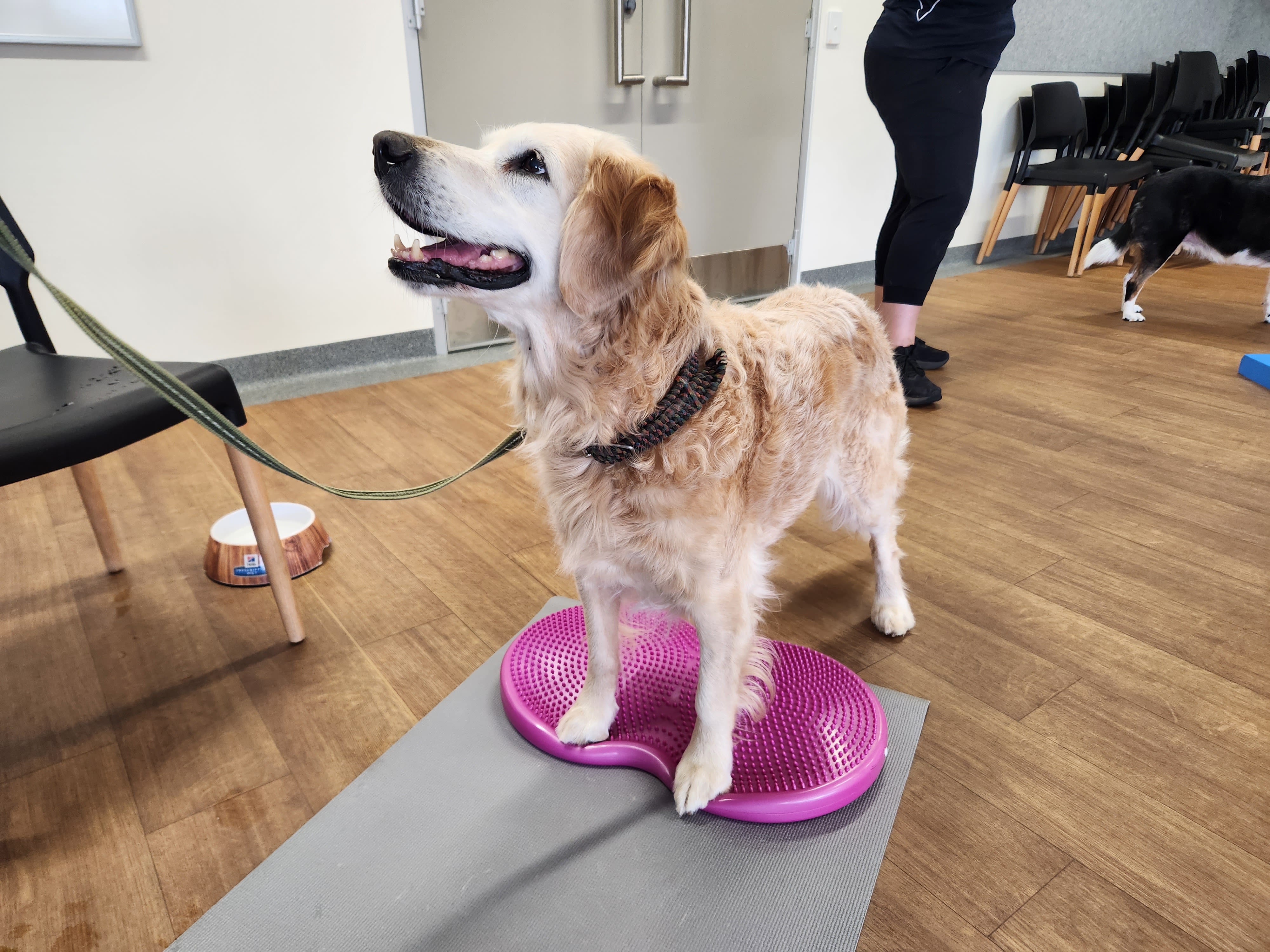
For years, Tracey Taylor’s dog Gypsy was her constant companion, never straying from her side, jumping for joy whenever Tracey would walk through the door and always seeking pats and cuddles from her obliging owner. However, as rescue dog Gypsy started to age, her demeanour changed. The once affectionate pooch was increasingly interacting less with her concerned owner. She started becoming unsettled in the evenings, pacing up and down the hallway at night. Even the backyard where she once used to roam happily became unfamiliar territory, causing her to cry out for help.
“To see those major changes in Gypsy was just heartbreaking for me. I didn’t sleep properly for two years - I was always listening out for her at night in case she needed me. The hardest thing was when she looked at me like she didn’t know who I was,” said Tracey.
Gypsy was suffering from Canine Cognitive Dysfunction (CCD), or doggy dementia as it is commonly known. Like Alzheimer’s disease in humans, doggy dementia is a progressive, neurodegenerative disease that comes with heartbreaking symptoms - disorientation, increased anxiety, forgetting previously learned behaviors and sometimes even their own names.
“CCD is a really cruel disease because you lose the pet you love and cherish long before they physically leave you. Sadly, there is no way to reverse this and no cure but we can do our best to reduce the risk of our dogs getting dementia,” said Tracey, a dog behaviour expert and PhD student at the University of Adelaide.
Gypsy is the inspiration behind Tracey’s new trial investigating ways to ‘paws’ time on the brain disease. She believes special training exercises designed for elderly dogs could hold the key to keeping doggy dementia at bay.
“Keeping the mind and body active as we age is often recommended to reduce the risk of dementia in humans and I believe the same advice could be put into practice for our pet dogs. Teaching dogs different behaviours and activities may be a way to improve their quality of life as they enter their twilight years,” she said.
“Previous studies have shown that non-medicated interventions have improved symptoms of dementia and Alzheimer’s in humans, and it’s hoped our study will replicate those findings in dogs and help them to fight the signs of cognitive decline.”
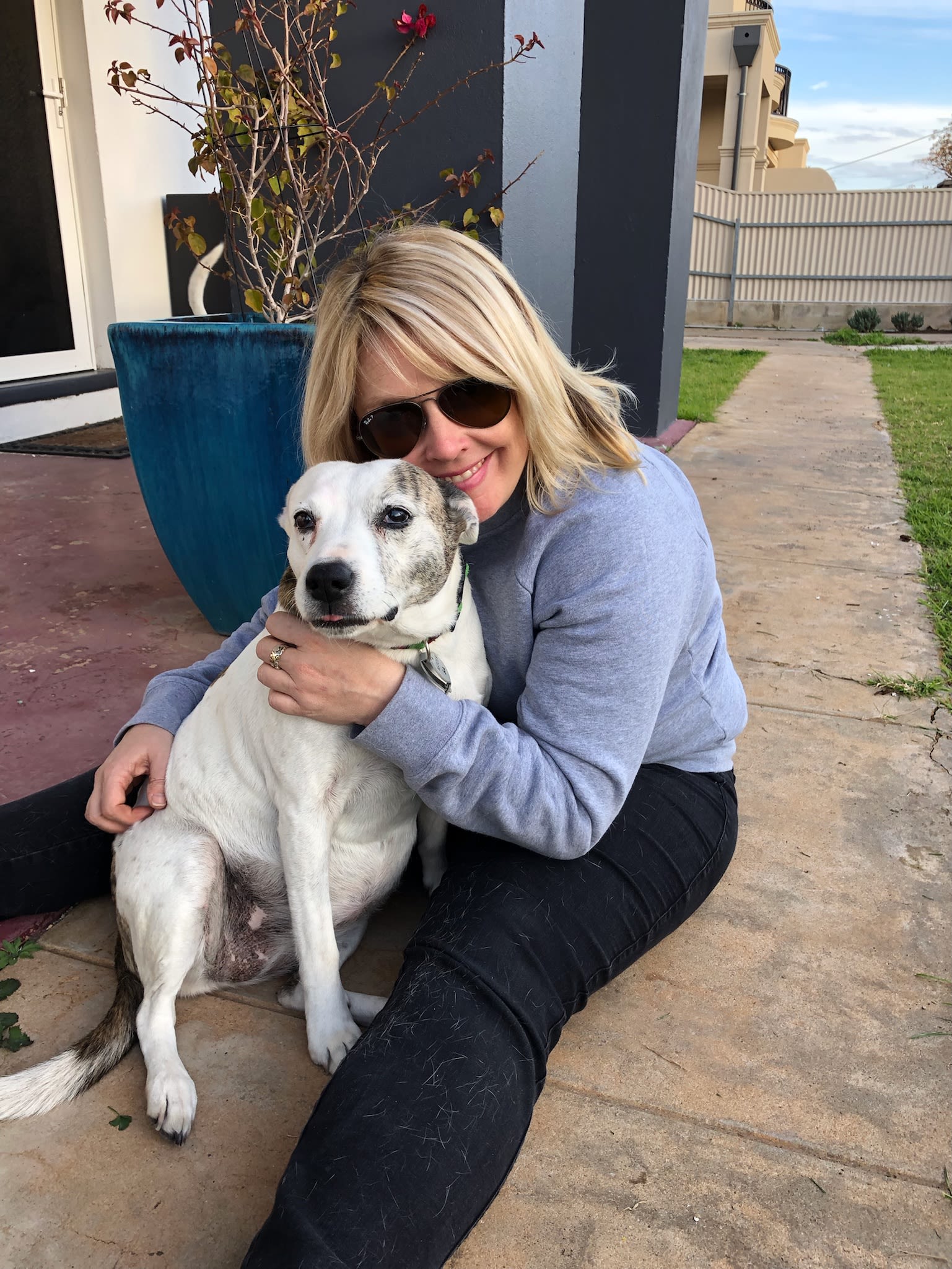
Currently, dozens of senior dogs are undergoing brain training in the form of scent tasks, balance tests and obstacle navigation through the University of Adelaide study. All of the activities are designed to be low or no impact to meet the needs of older pets. There is also a strong focus on positive reinforcement methods to keep the four-legged participants motivated as they carry out each task. The dogs involved in the trial wear an activity tracker to monitor movement, as there is evidence to suggest that those who are less active could be at greater risk of dementia.
Recent research from the United States found dogs that were less active were almost 6.5 times more likely to have dementia than their more energetic peers. That same study also revealed that for dogs over the age of ten, every extra year of life increased their risk of developing dementia by more than 50 per cent. While more dogs are enjoying longer lives thanks to advances in veterinary medicines, cases of doggy dementia are also likely to be rising. Considering 62 million households in the US are also home to pet dogs, it’s expected that the number of dogs afflicted by this condition could be much higher than reported.
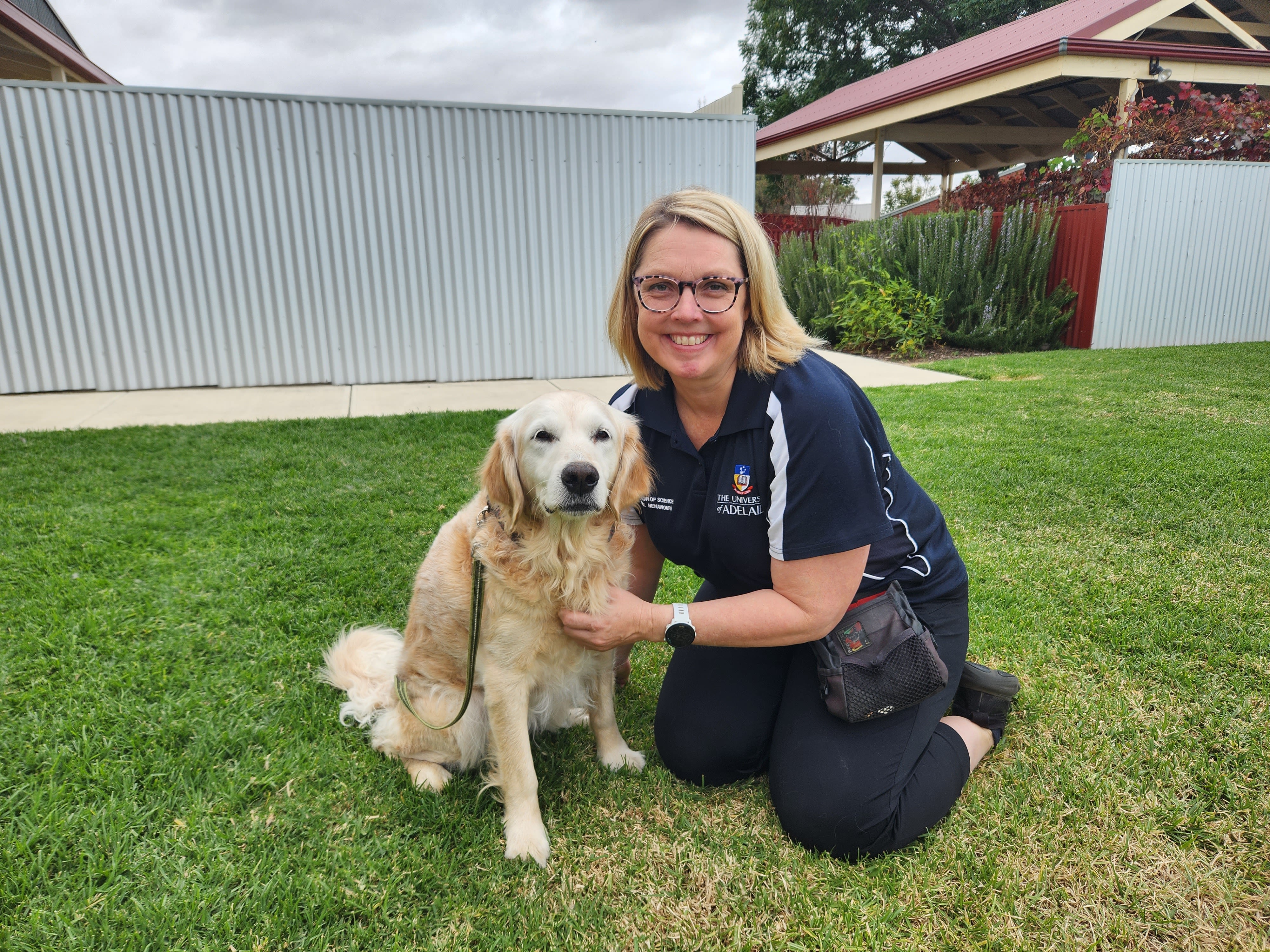
“Some studies suggest up to 60 per cent of senior dogs, mostly over the age of 11, are affected by doggy dementia. Often owners think their dog is just slowing down and the symptoms are dismissed as old age but signs such as getting lost in their own backyard or home, becoming stuck behind furniture because they forget they have a reverse gear or vacant staring can all be symptoms of CCD,” said Tracey.
“It is also notoriously hard for vets to get a definitive diagnosis as there is no accurate, non-invasive test for doggy dementia and, like humans, older dogs are likely to have a number of health issues that can mask the illness.”
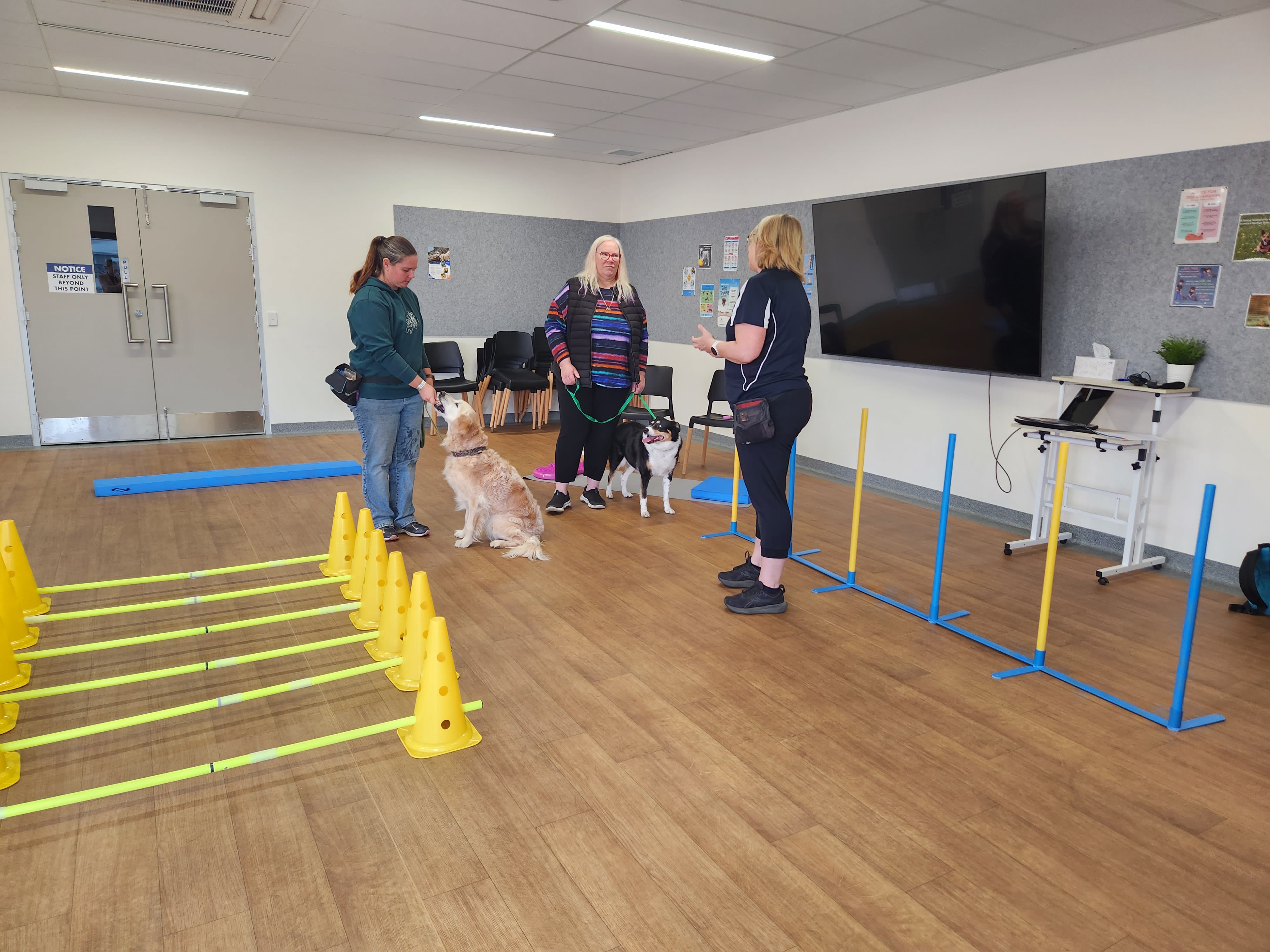
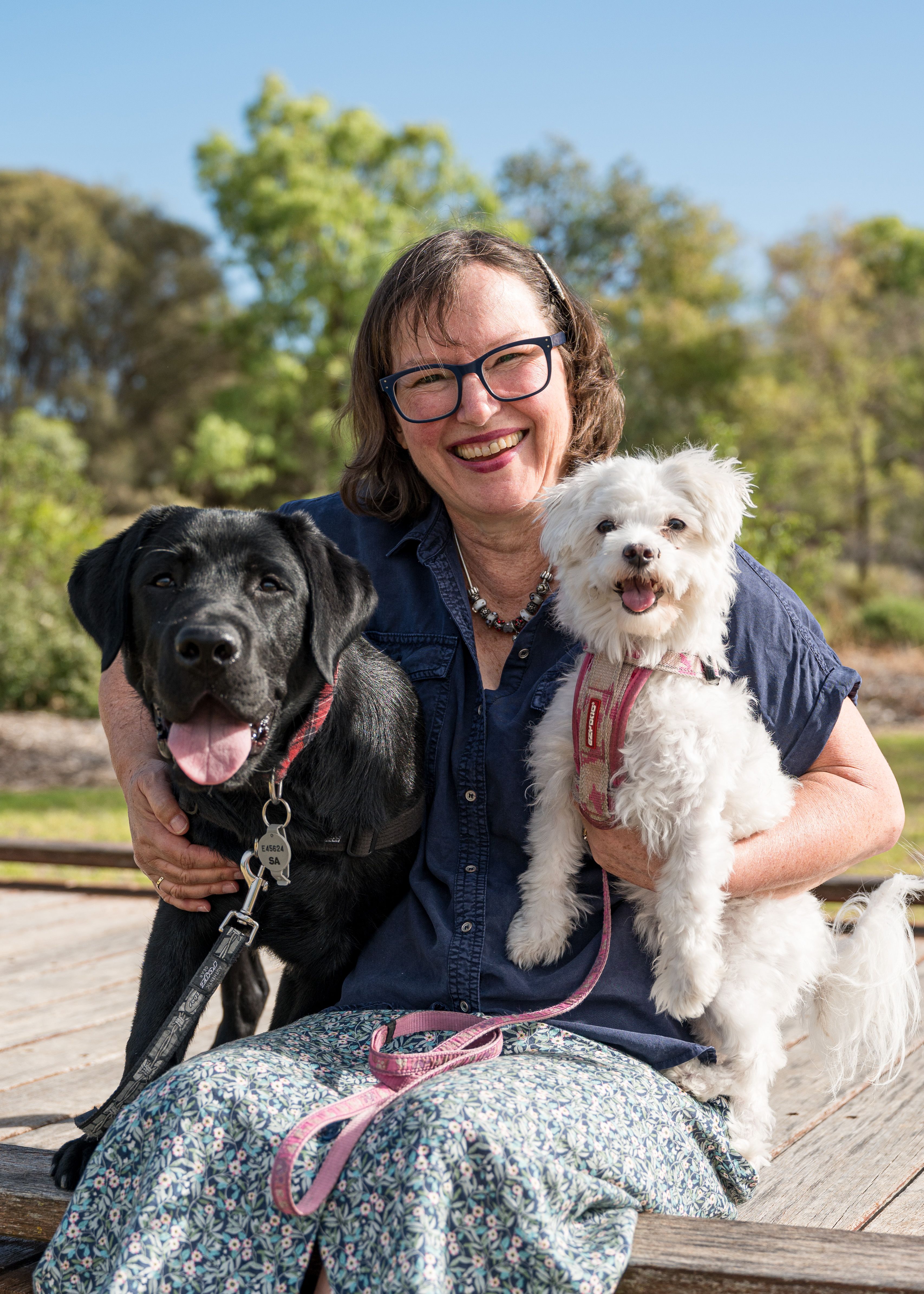
Associate Professor Susan Hazel with her dogs Ziggy and Rosie. (credit Isaac Freeman)
Associate Professor Susan Hazel with her dogs Ziggy and Rosie. (credit Isaac Freeman)
Associate Professor Susan Hazel is a veterinarian and animal behaviour expert at the University of Adelaide’s School of Animal and Veterinary Science. She is the principal investigator of the trial, which is still in its early phases and is expected to continue until the end of the year.
Associate Professor Hazel said the burden and stress of caring for a dog with dementia can be similar to what people experience when they care for humans with Alzheimer’s disease.
“There are only a few medications that vets can prescribe to mitigate signs of dementia in dogs and new treatments are urgently needed. If this intervention works, it could be an easy, effective and accessible way to give our furry friends quality of life during their senior years until the day when new medications become available.”
Despite the challenges that come with caring for a dog with dementia, both University of Adelaide researchers agree it is extremely rewarding.
“We know people consider their dogs to be members of their family and continue to love and cherish them as they enter old age. In fact, it’s not uncommon to hear owners say nothing is too much trouble for their beloved pets and they will do anything they can for them,” said Associate Professor Hazel.
Gypsy was 14 years old when she passed away but Tracey hopes her experience looking after her best friend will lead to a better outlook for elderly dogs and their owners.
“It's been just over a year since Gypsy passed away and I still think about her most days. She is my motivation for undertaking my PhD as I think we simply don't understand how to help guardians and their dogs when they're going through this. It can be a lonely and distressing journey to go through as a guardian of a dog with CCD but I hope one day we can help to make that path a little easier for both pets and their owners,” said Tracey.
If you suspect your dog is affected by doggy dementia, please consult your veterinarian. This project is funded by The Waltham Foundation.
About The University of Adelaide:
- Australia’s third oldest university, celebrating 150 years in 2024.
- First Australian university to admit women to all our degree courses on an equal basis to men
- One of the first universities with a conservatorium of music
- Five Nobel Laureates
- Ranked in the World's top 1% of universities
- One of the largest concentrations of agriculture and wine research and teaching expertise in the Southern Hemisphere at the Waite campus.

This content was paid for and created by The University of Adelaide. The editorial staff at The Chronicle had no role in its preparation. Find out more about paid content.


